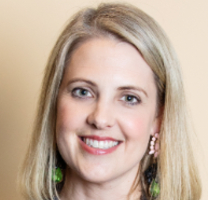Lack of spending to address gender inequality in the budget is hard to overlook

The federal government’s history-making, record-spending budget failed to address the disproportionate impact of the COVID crisis on women.
There is wide consensus among economists – conservative as well as progressive – that women are among the clear losers in Treasurer Josh Frydenberg’s watershed budget.
Just $240 million of $507 billion is targeted at addressing the systemic barriers that preclude so many women from establishing financial security in the Women’s Economic Security Statement.
This represents less than one-third of one per cent of the biggest budget in Australia’s history.
The Prime Minister’s office disputes this read – vehemently – and says it’s not accurate to depict the $240 million as the totality of its investment in women.
A representative for the PM declared ‘‘Nothing in the budget is gendered’’, which Senator Jane Hume reiterated on Twitter.
“The budget is not exclusive of women. It’s not a budget for men. It’s for all Australians,” Senator Hume wrote.
That’s true. The budget applies to all Australians, but it’s factually inaccurate to say it applies equally to all Australians.
Every measure in the budget is gendered. Because the world is gendered.
For the budget not to be gendered men and women would have to occupy identical positions across every sphere in Australia. At home. In workplaces. In every single tax bracket. In asset ownership. In businesses.
That is not the case in Australia.
It’s the reason that between 1984 and 2013 a Women’s Budget Statement, which provided rigorous economic analysis of the impact of each policy on women, was presented in tandem with the federal budget.
Tweet from @SenatorHume
It was a substantive component of the budget that recognised policies didn’t affect men and women in the same way.
In 1984, 13 departments measured the impact on women and from 1985 all departments and agencies released data on the impact of initiatives on the status of women.
That process was abolished in 2014 by then Prime Minister Tony Abbott and has never been reinstated.
For the Treasurer, or anyone in government, to credibly describe this Budget as ‘gender neutral’ would require analysis they haven’t undertaken.
What we know so far is that the impact of the COVID crisis and the recession is gendered, so the imbalance continues unless you specifically address this impact on women.
Given we are in the throes of a ‘pink recession’, where women are disproportionately affected by unemployment and underemployment, tax cuts designed in a way that mean women and the economy lose out are not a win for women.
Paid work has been decimated by the COVID crisis, with women losing hours and full-time employment in greater numbers than men at the same time that their unpaid work has soared.
Early learning is an effective recovery measure with the potential for delivering billions of dollars in economic benefits, increasing women’s workplace participation, creating good jobs in the female-dominated childcare sector, and improving both the lives of women and family budgets.
Grattan Institute modelling showed that spending $5 billion on universal, high-quality early learning would deliver $11 billion in increased economic activity by helping women back into the workforce.
Tweet from @GrattanInst
Last month, a national poll by Essential Research found a majority of Australians (65 per cent) support an early childhood education system that is accessible to everyone, and integrated in our public education system.
This majority support for the proposal was across all ages, states and political affiliation.
Australian families and carers have never struggled with the cost of early childhood education and care as much as they are now.
Universal, quality early learning is the most compelling, valuable policy the federal government could pursue to ensure Australia’s recovery from COVID-19 leads to a healthier, more equitable and more sustainable future.
If it was serious about boosting women’s financial security, it would have found more than $240 million, to be spent over five years, to invest. By many multiples.
Georgie Dent is the executive director of The Parenthood and contributing editor at Women’s Agenda








